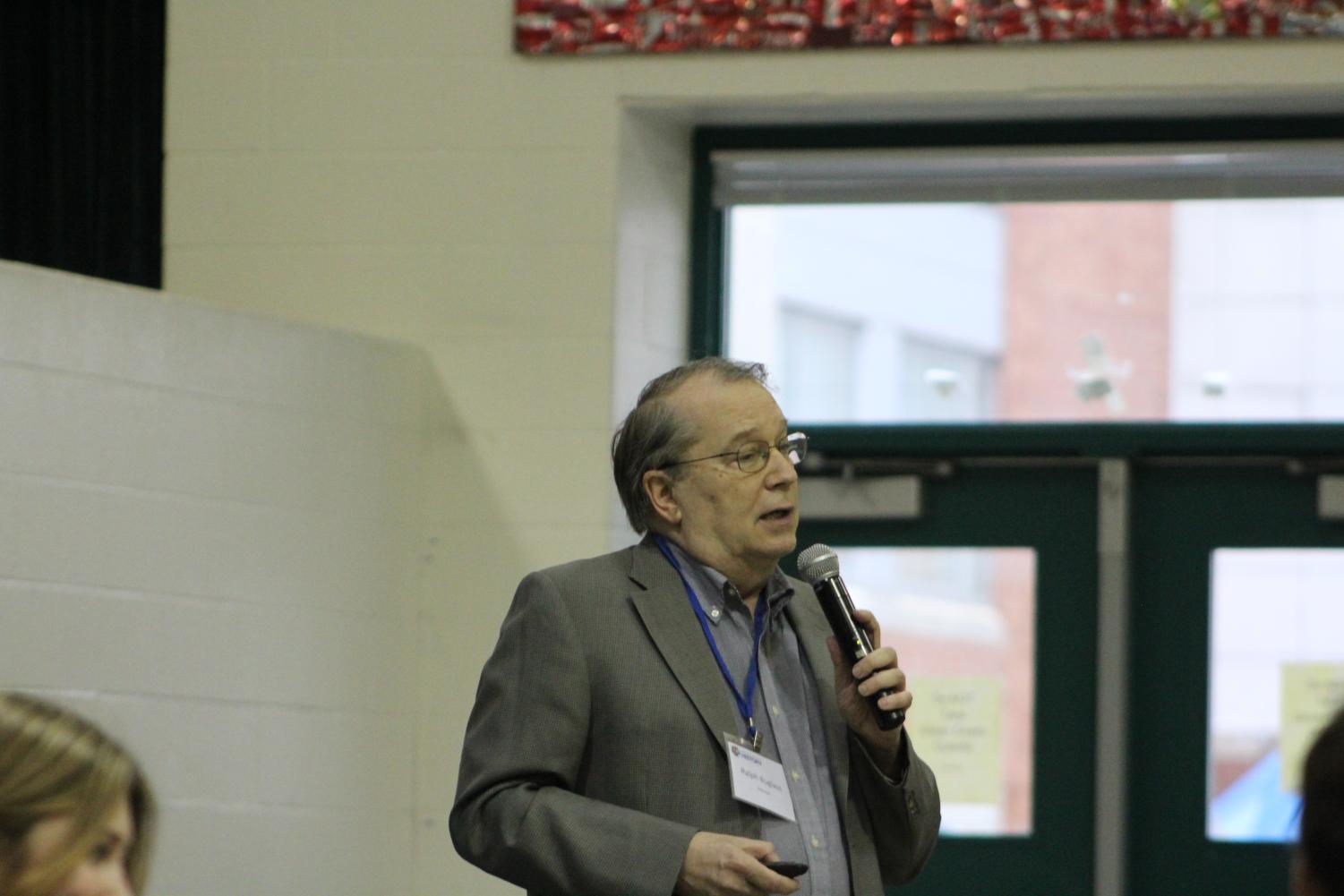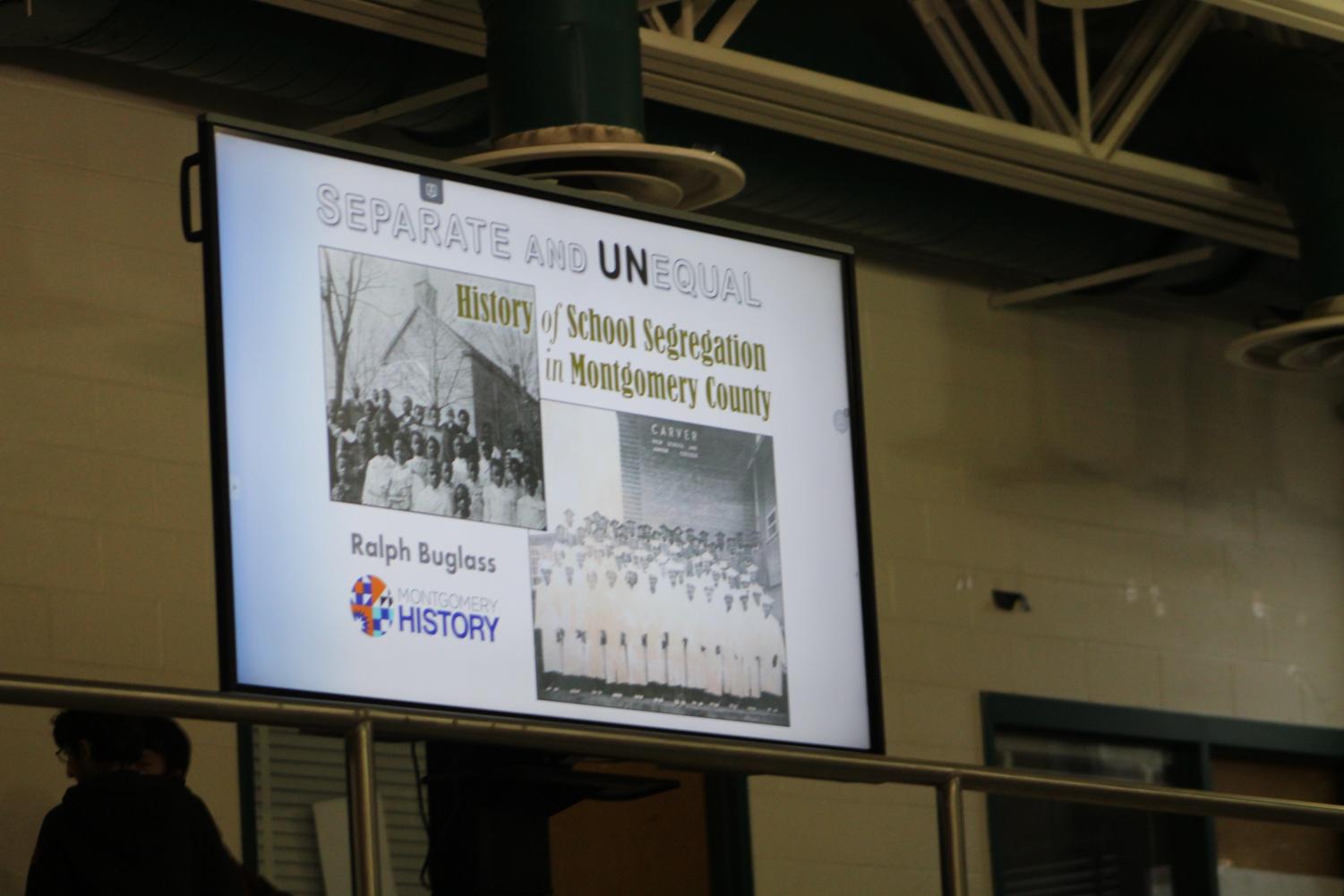On Friday, Feb. 17, the History Club and Black Student Union (BSU) jointly welcomed a speaker from the non-profit Montgomery History. Held in the student commons, the talk educated students on the history of school segregation and the Black community in Montgomery County.
The speaker, a volunteer historian named Ralph Buglass, took students through what he calls the “Three Act Play” of school segregation in Montgomery County. The three steps go as follows: One- small community schools, starting in the 1860s. Two- early public schools, beginning 1872; and finally act three – “segregation’s slow demise,” dated at the 1930s-1961.
One of the key points of Buglass’ talk was the court case Gibbs v. Broome (1936), in which a teacher and principal at Rockville Colored Elementary School named William Gibbs Jr., filed suit against the Board of Education (BoE). Represented by the NAACP, with future Supreme Court Justice Thurgood Marshall as one of his attorneys, Gibbs sought to achieve equal pay for Black teachers compared to White teachers of the same qualifications.
“This landmark ruling marked the first time that any court in the nation had found that black professionals with the same experience and credentials as white professionals had the right to equal pay,” University of Maryland professor Larry Gibson said, as quoted by Buglass.
Buglass attributes much of his research to Gibson, who is also the author of a book on the life of Thurgood Marshall, the first African-American Supreme Court Justice.
“I give credit to Gibson for a lot of the research,” Buglass said. “I’m just doing what I can to spread the story.”
The event drew students from all around the school, with students coming from the History Club and BSU as well as non-club members filling the lower part of the student commons to listen to the speaker.
“The whole thing was really interesting, especially hearing about the court case (Gibbs v. Broome). What really stood out is that Gibbs was fired afterward, just for speaking out against segregation,” BSU member senior Olivia Profit said.
Buglass also highlighted the individual and communal efforts of Black Americans in the county.
“I want people to understand the resistance and persistence of the Black community here. They fought for their children’s education by things like pooling money for a school bus or taking the county to court, and really just doing whatever they could in trying to eventually overcome the segregation imposed by law,” Buglass said.
And while the county has come a long way and changed very much throughout its history, both in the education system and in racial equality, History Club vice president junior Defne Ustundag knows that this remains an important topic and a fight that is still ongoing.
“Even today, the county does prioritize more affluent schools,” Ustundag said. “We’re one of the wealthiest counties in the country, but again and again, there are still disparities that this county has to address.”
















































